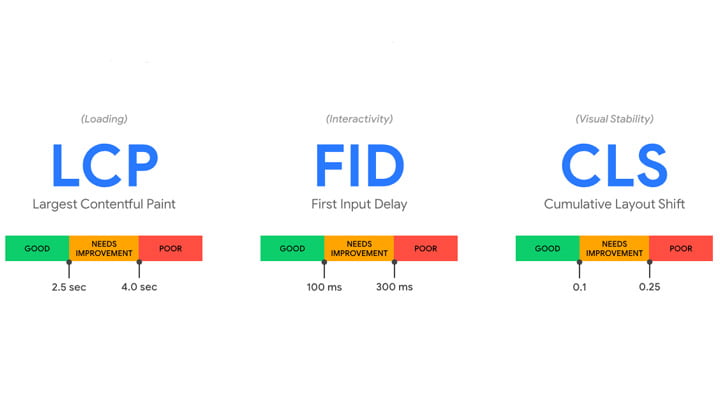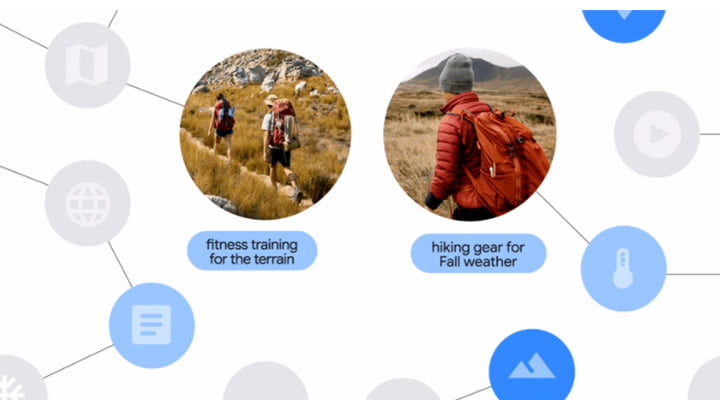Thanks to Google’s never-ending process of algorithm refinement, your SEO strategy is always incomplete or partly outdated. Google truly changed the ranking algorithm in 2021. SEO experts have had to work hard to keep up with all of these changes.
Under these circumstances, preparing your SEO strategy for 2022 is a huge challenge. Google might continue to roll out major updates, or it could stay away from core updates. No matter the scenario, you have to be prepared for everything. However, a few key updates from 2021 will have an impact in the next year, and you should adapt your SEO strategy accordingly. Check out this recap of the key updates in 2021 – it’s filled with actionable tips aimed at acquiring more customers through organic search.
Core Web Vitals

Website loading speed has been a ranking factor since May 2020. Webmasters have done their best to speed up their sites since then. Google PageSpeed Insights is a tool provided by Google to assess a website’s speed, but in its early phase, it didn’t provide too much actionable data. Besides, webmasters needed some metrics to evaluate the site performance.
Page Experience is a two-phases update rolled out in June and July 2021. Google recommends webmasters focus on three metrics: Largest Contentful Paint (LCP), First Input Delay (FID), and Cumulative Layout Shift (CLS). Although these metrics aren’t new, Google now provides clear recommendations on the values required to get a positive evaluation. Webmasters have more tools and a clear idea about what should be done to get the green light from Google. Unlike in the cases of other major updates, Google informed webmasters about this update and provided complete guidance to improve the speed, interactivity, and visual stability of the sites.
The announcement of the algorithm update forced webmasters to pay more attention to the loading speed, which mobile users appreciated the most.
Passage Ranking
Passage ranking was announced in October 2020 and went live in February 2021. Google said that this update would impact 7% of all searches. Passage ranking helps users get needed information for very specific searches. Instead of ranking long-form content, Google provides a passage from that content containing the full data the searcher needs. Bear in mind that Google doesn’t rank passages, it continues ranking web pages. However, the search bots became more intelligent and completely understood the content.
SEO experts call it Passage ranking, but in fact, this Google update isn’t a ranking algorithm update, it’s an indexing change. Simply, it’s not about the quality of your website, but how Google displays the search results. This update gave a boost to long-form content and less-perfectly optimized sites. Google’s Martin Splitt announced that many websites have quality content but aren’t properly optimized and Passage Ranking aims to resolve this problem. It pulls out sections of relevant content from these sites.
This update doesn’t require you to do much. All you have to do is well-known by any webmaster. Write the best content on the web, pay attention to long-tail keywords, and, most importantly, create content for users and not search spiders.
BERT and MUM

BERT stands for Bidirectional Encoder Representations from Transformers, and MUM stands for Multitask Unified Model. While these abbreviations and terms may not make sense to you, BERT and MUM help billions of people in their daily Google searches. BERT is an AI-based technology aiming to help Google deliver consistent answers to any kind of search. MUM is also based on AI but is a thousand times more powerful than BERT. In simple words, MUM is a tool designed to deliver the proper answer when there is no simple answer. MUM not only understands content but also generates it. Moreover, MUM is multimodal – it takes information from text and images.
But how practically does MUM enhances people’s searches? Briefly, Google shifts from providing answers to being a conversational partner. It does everything possible to offer the needed answer to conversational queries. Google’s example from the article introducing MUM is perfect. Before MUM, you would need to perform dozens of searches to find out the differences between hiking on Mt. Adams and Mt. Fuji. Your experience would be different than simply asking a partner, “I have hiked Mt. Adams and now want to hike Mt. Fuji next fall, what should I do differently?” Well, thanks to this new update, Google can provide a similar answer as a professional hiker would do.
You can’t do many things to optimize your website for BERT and MUM. All you have to do is to publish the best content, written for users and not for Google bots.
Expertise, Authoritativeness, and Trustworthiness
You need actionable data to craft a working SEO strategy while improving your expertise, authoritativeness, and trustworthiness (EAT), factors that can be hard to measure. EAT factors aren’t new to you, but Google began to pay more attention to these in 2021. Certainly, they will weigh more in 2022. In other words, you have fewer chances than ever to cheat Google. Instead of trying black SEO strategies, you’d better do your best to create a trustworthy brand. It’s a long process that requires many resources, but it pays off in the long term.
Voice Search

Google didn’t release any update specifically for voice search in 2021 and hasn’t announced any plans to refine the algorithm to improve it for voice search. However, it’s pretty obvious that you should take voice search into account while developing your SEO strategy for 2022. People, especially youngsters, use voice search more and more. Besides, the rise of home assistants will make voice search even more common.
Google indirectly prepares the ground for improving the experience of voice searchers. For instance, most voice searches are on mobile, and all search engines recommend webmasters improve mobile experiences. Voice searchers use conversational queries, which BERT & MUM focus on.
All researches show that voice search will continue its growing evolution. Although there likely won’t be a Google update for voice search in the near future, you still need to take it into account for your SEO strategy in 2022. Don’t exaggerate with content optimization for voice search. Look for long-tail and question keywords, use a conversational style, and improve the content readability.
Wrapping Up
Google made many small and medium changes in 2021 in areas like featured snippets, video experience, and meta description. Google constantly tries to better respond to the evolving needs of users and these changes are normal. Keep in mind all the above suggestions to create a more organic experience for your users. The times of keyword stuffing, unnatural links, and spammy comments are gone. It’s time to focus on the real needs of the users – that’s the best piece of advice for a working SEO strategy from now on!
Leave a Reply